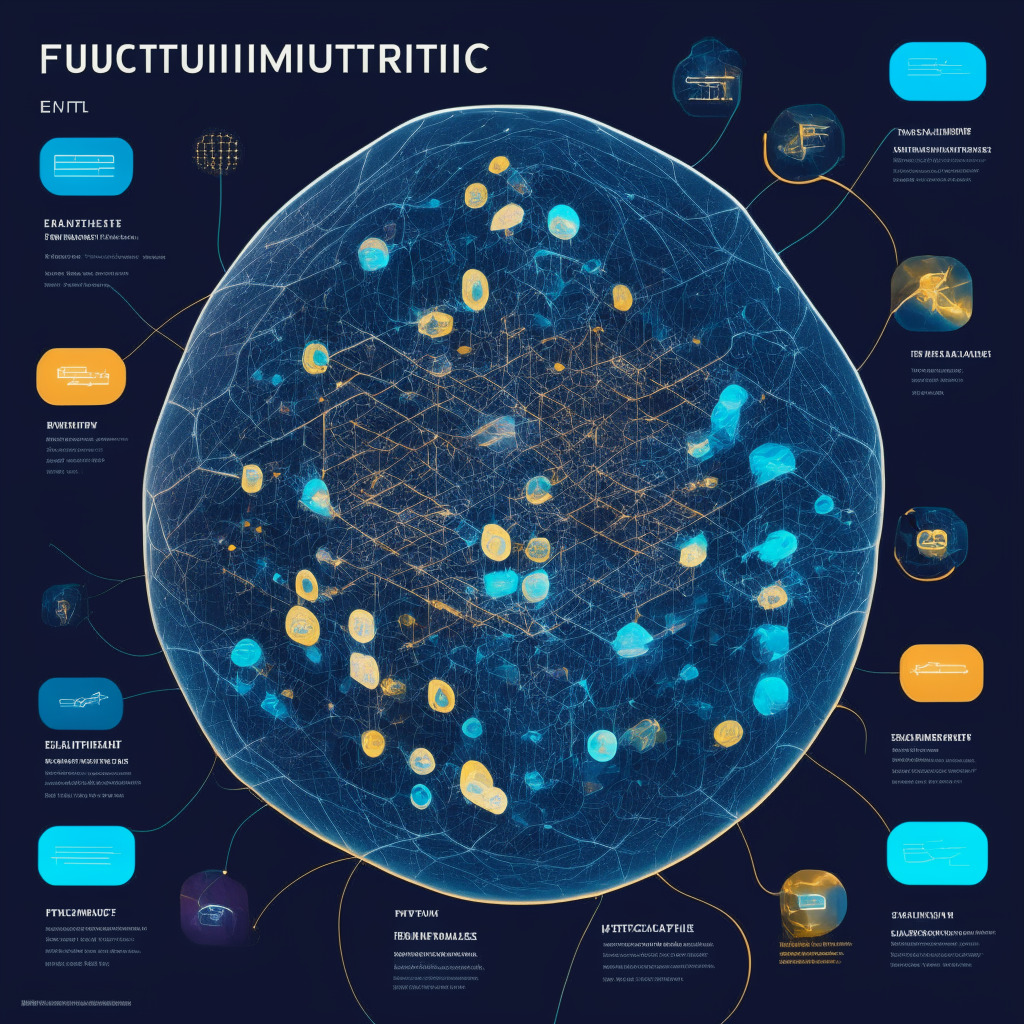Lens Protocol introduces Lens Improvement Proposals (LIPs) for decentralized community-driven decision-making, aiming for flexibility, uniformity, and open standards. Current proposals focus on open governance model, third-party algorithms and machine learning integration, and metadata standardization.
Search Results for: lens protocol
Decentralized Social Media Revolution: Lens Protocol Raises $15M and Empowers Users
Aave’s Lens Protocol, a decentralized social media solution, has raised $15 million to develop a blockchain-backed platform that gives users control over their profiles, connections, posts, and data. Promising innovative monetization models and profitable businesses sharing revenue equitably, Lens aims to create an interconnected web of decentralized apps accessible through a universal profile.
Lens Protocol: Revolutionizing Social Media or Ambitious Misstep? Debating Decentralization & NFTs
Lens Protocol, a decentralized social media platform by Aave, raised $15 million in funding to revolutionize internet value generation and ownership. The platform, utilizing Polygon blockchain, faces challenges of decentralization and NFT integration in social media, with support from prominent investors and Aave.
Decoding the Complex World of Blockchain through Solana’s Lens: Real-World Solutions and Challenges
Raj Gokal, co-founder of blockchain protocol Solana, is addressing blockchain scalability through decentralized physical infrastructure networks (DEPIN). He emphasizes well-thought-out factors to create a scalable blockchain system. Despite challenges in industries such as real estate, Solana is working towards stable and reliable Web3 infrastructure, critical for institutional adoption. As industry practices evolve, the blockchain future becomes increasingly tangible.
Aave Secures $15M for NFT-Powered Decentralized Social Media: Lens vs. Traditional Platforms
Aave secures $15 million to develop Lens, an NFT-powered protocol for decentralized social media platforms, enabling users to tokenize social data and transfer it between platforms. Built on Ethereum scaling solution Polygon, Lens aims to consolidate users’ online presence and promote growth across networks.
Decoding the Future of NFTs: Between Falling Trading Volumes and Rising Development Activity
“Despite a 41% decrease in NFT trading volume in Q2, enthusiasm from developers remains high, as evidenced by the 5.9 million smart contracts deployed across EVM-compatible networks. This 1,107% increase since Q2 2022 suggests a robust growth landscape for Web3 despite market volatility.”
Apple App Store Guidelines: A Roadblock for Blockchain Tech and NFTs?
In an unfolding narrative around Apple and its App Store guidelines, questions arise about whether these constraints are hampering blockchain technology and non-fungible tokens (NFTs). With inconsistencies in their approach to crypto applications, the company is accused of stifling potential while ensuring a prolonged revenue stream.
Web3 Social Media: Decentralization, Privacy, and the Debate on Content Control
Web3 social media platforms focus on decentralization, transparency, and user data ownership, leveraging technologies like AI, Machine Learning, and blockchain. Providing users with complete freedom and control, they incentivize engagement through token rewards and NFTs but face challenges in balancing freedom with content security.
Navigating the Chaos: Pros and Cons of Web3 Social Media Fragmentation
The emerging Web3 social media landscape faces fragmentation, with users struggling to adopt multiple platforms. Despite barriers to entry, increased experimentation and innovation are paving a path to the success of Web3 social networks, challenging well-established Web2 communities like Twitter and Instagram. The future of Web3 relies on balancing innovation with user experience to seamlessly connect global communities.
Fiat-to-Crypto Onramps: Balancing Convenience and Security in the Crypto Sphere
Stripe recently introduced a fiat-to-crypto onramp for Web3 companies, aiming to tackle the “cold start problem” and optimize conversion and authorization rates. Despite its convenience, users must remain vigilant to prevent false sense of security and prioritize due diligence when handling digital assets.
Balancing Act: Choosing the Right Consensus Mechanism for Your Blockchain Project
“Choosing a consensus mechanism for a blockchain project is complex and multifaceted, involving the balancing of security, sustainability, scalability, regional preferences, and long-term project goals. The decision requires understanding and navigating through various project-specific details and an ever-evolving technology landscape.”
Achieving Finality in Blockchain: Irrevocable Transactions, Challenges and Future Prospects
“Finality in blockchain refers to the irrevocable confirmation of a transaction or block of transactions. Achieving finality has challenges like network latency and potential 51% attacks. However, improved security algorithms, consensus algorithms and advanced cryptographic techniques promise faster, more reliable confirmations, and permanence of transactions.”
The Intricate Web of Illicit Fentanyl Trade Powered by Cryptocurrency
The U.S Treasury’s Office of Foreign Assets Control (OFAC) has targeted several cryptocurrency wallets involved in the illicit trade of fentanyl. Most transactions were conducted via Stablecoins on Ethereum and Tron networks. These wallets, save for one, were hosted on a centralized crypto exchange, allowing the illicit flow of hundreds of thousands of dollars worth of cryptocurrency.
Decentralized Finance vs Centralized Finance: Coming Conflict or Synergetic Co-Existence?
“CEO of Binance, Changpeng Zhao, predicts a future where DeFi surpasses CeFi, fueled by his belief in the potential of decentralization. However, the Bank for International Settlements argues that pure DeFi has limited real-world application due to its requirement for centralized oracles.”
Genesis Bankruptcy Fallout: A Battle of Crypto Titans Over Fairness and $3.4 Billion Liabilities
Genesis, a crypto lender facing bankruptcy, is being accused by creditors, including Gemini and Digital Currency Group, of manipulating bankruptcy proceedings with their proposed settlement. The settlement, seen by some as giving preferential treatment to certain creditors, includes Alameda Research receiving $175 million from Genesis’s assets. Critics argue it deviates from acceptable Chapter 11 protocol.
Worldcoin’s Kenyan Controversy: Privacy versus Blockchain Innovation in Crypto Tech
“The recent police raid on Worldcoin’s Nairobi warehouse, in pursuit of collected data, has stirred controversy in Kenya. Concerns have been raised about potential privacy violations and misuse of sensitive iris data by Worldcoin’s project. This episode highlights how emerging crypto technologies are reshaping the discourse around privacy.”
South Korea’s Digital Currency Ambitions: Analyzing the Shift to Central Bank Digital Currency and the Underlying Risks
The South Korean central bank (BOK) plans to upgrade its payment systems with a focus on Central Bank Digital Currency (CBDC). Innovations like real-time gross settlement aim to enhance real-time transfers. However, operational risks from digital transformations have prompted BOK to strengthen oversight for secure transactions. Preparatory steps for the CBDC explore possibilities of smart contracts, offline payments, and cross-border transactions.
Navigating LayerZero’s Bright Future Amidst Blockchain Tech Challenges
“Bryan Pellegrino, CEO of LayerZero, expresses optimism about the future of blockchain technology, with LayerZero’s usage surging dramatically. Despite facing a shifting industry landscape and technological limitations, he anticipates further opportunities and innovations, including expansion into the Asia-Pacific region.”

















